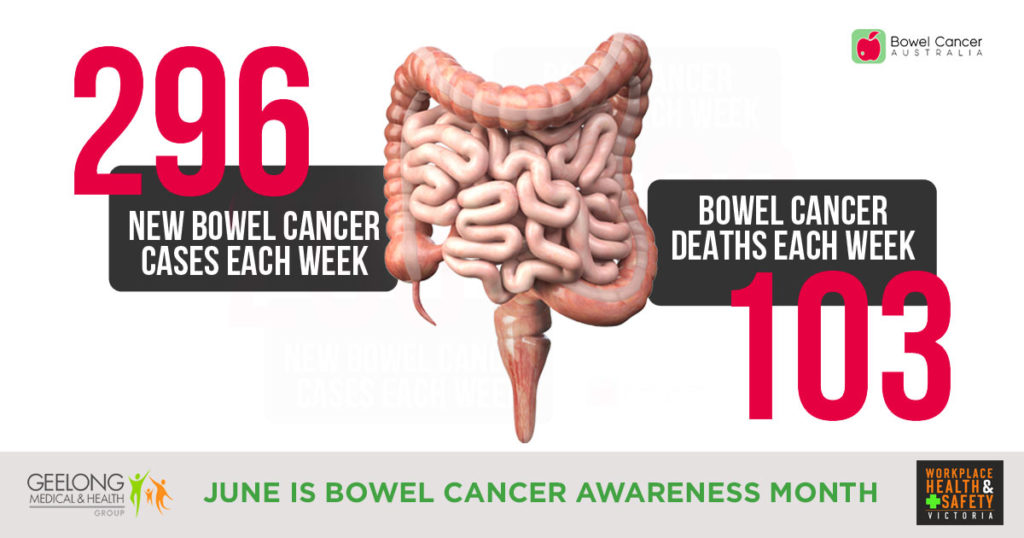June is Bowel Cancer Awareness Month, our friends at Bowel Cancer Australia’s signature event to raise awareness of Australia’s second deadliest cancer and funds for the leading community-funded charity dedicated to prevention, early diagnosis, research, quality treatment and the best care for everyone affected by bowel cancer.
Bowel cancer claims the lives of 103 Australians every week (5,336 people a year) – but it’s one of the most treatable types of cancer if found early.
While the risk of bowel cancer increases significantly with age, the disease doesn’t discriminate, affecting men and women, young and old.
296 Australians will be diagnosed with bowel cancer this week (15,352 people a year).
Bowel cancer, also known as colorectal cancer, can affect any part of the colon or rectum; it may also be referred to as colon cancer or rectal cancer, depending on where the cancer is located.
During the early stages of bowel cancer, people may have no symptoms, which is why
screening is so important. As a cancerous tumour grows, it can narrow and block the bowel resulting in changes to the size, shape, and/or colour of poo, with our without rectal bleeding. These symptoms are often attributed to haemorrhoids or simply ignored.
Any of the below symptoms could be indicative of colon or rectal cancer and should be investigated by your GP if they persist for more than two weeks.
- Blood in your poo or rectal bleeding
- A recent, persistent change in bowel habit (e.g. diarrhoea, constipation or the feeling or incomplete emptying)
- A change in the shape or appearance of your poo (e.g. narrower poos or mucus in poo)
- Abdominal pain or swelling
- Pain or a lump in the anus or rectum
- Unexplained anaemia causing tiredness, weakness or weight loss
Healthy diet and lifestyle choices, as well as screening and surveillance, can help to reduce your bowel cancer risk.
Bowel cancer screening is safe and easy and can be done at home. Screening involves collecting small samples of toilet water or poo, placing them on a card or in a container, and mailing them to a pathology laboratory for analysis. The results are then sent back to the individual and their GP.
A positive result means blood in poo has been detected. It does not necessarily mean bowel cancer is present but does require further investigation by a GP and a referral for colonoscopy within 30 days.
A negative result means blood in poo has not been detected in the samples; however, it does not guarantee no cancer is present or that the person will never develop bowel cancer.
The at-home test is able to detect non-visible blood that cannot be seen with the naked eye. Blood in poo is one possible symptom of bowel cancer. If the result of the test is positive, the person is contacted to arrange a colonoscopy.
For people ineligible to participate in the government program, talk to your GP or pharmacist today about BowelScreen Australia, or order a screening test
online or by calling Bowel Cancer Australia’s Helpline on 1800 555 494.
—

